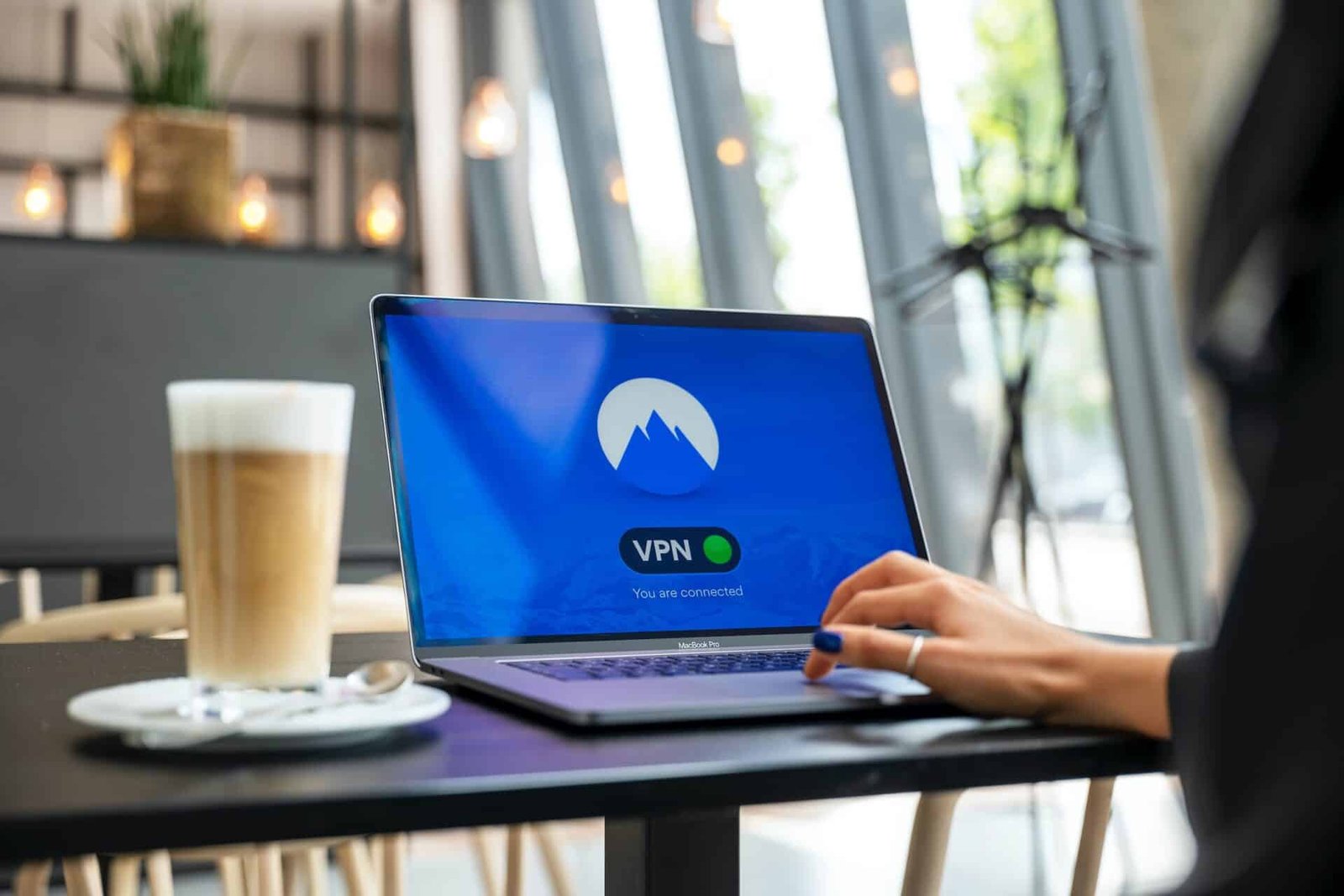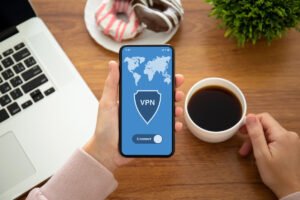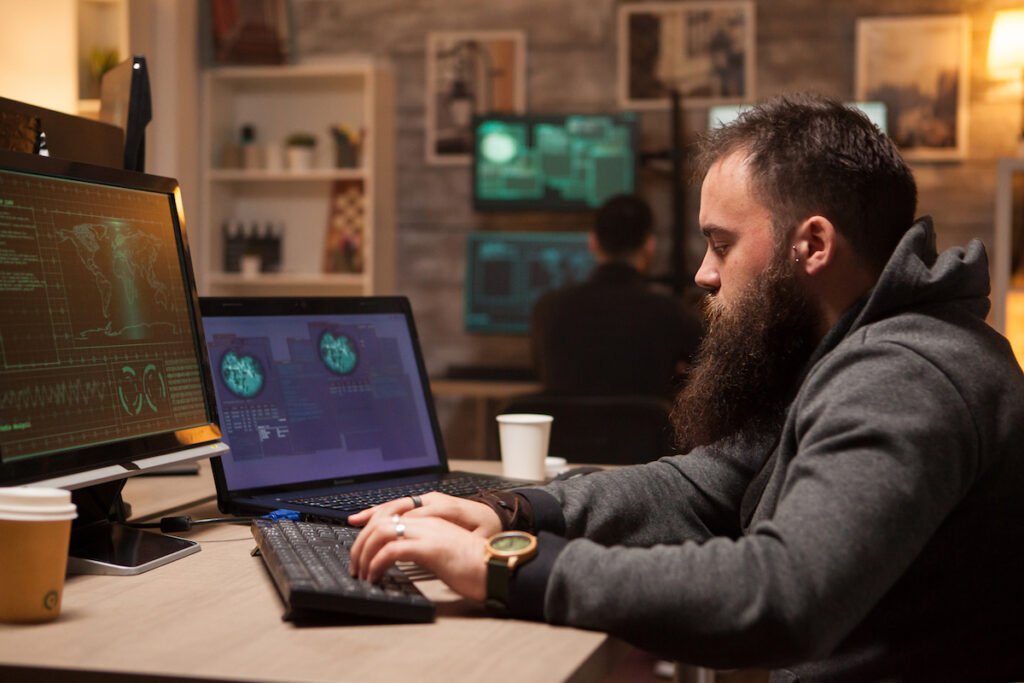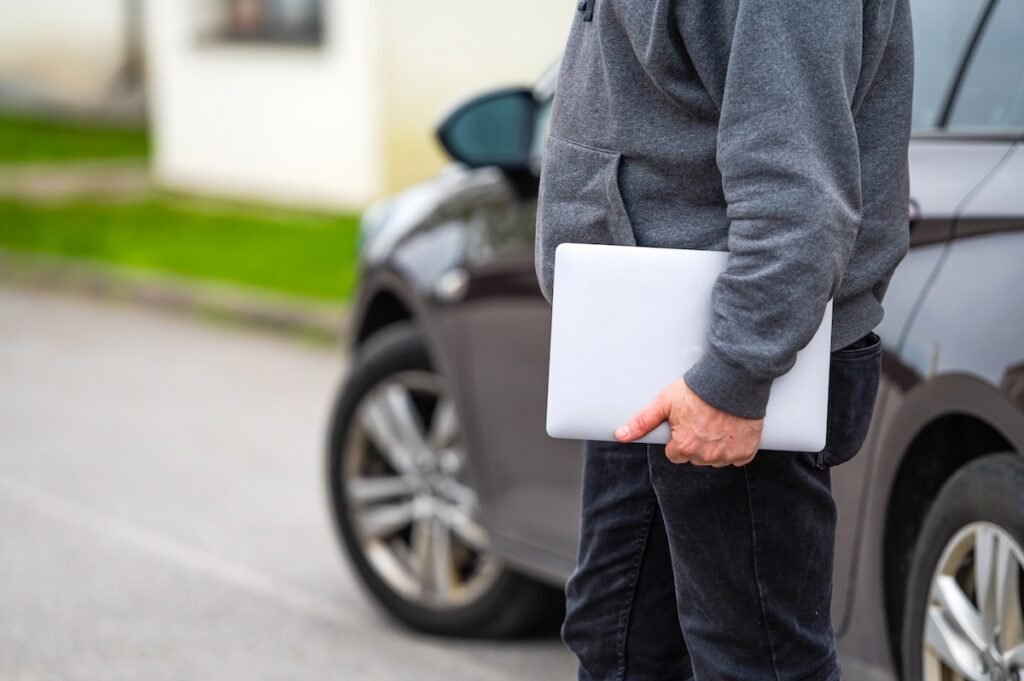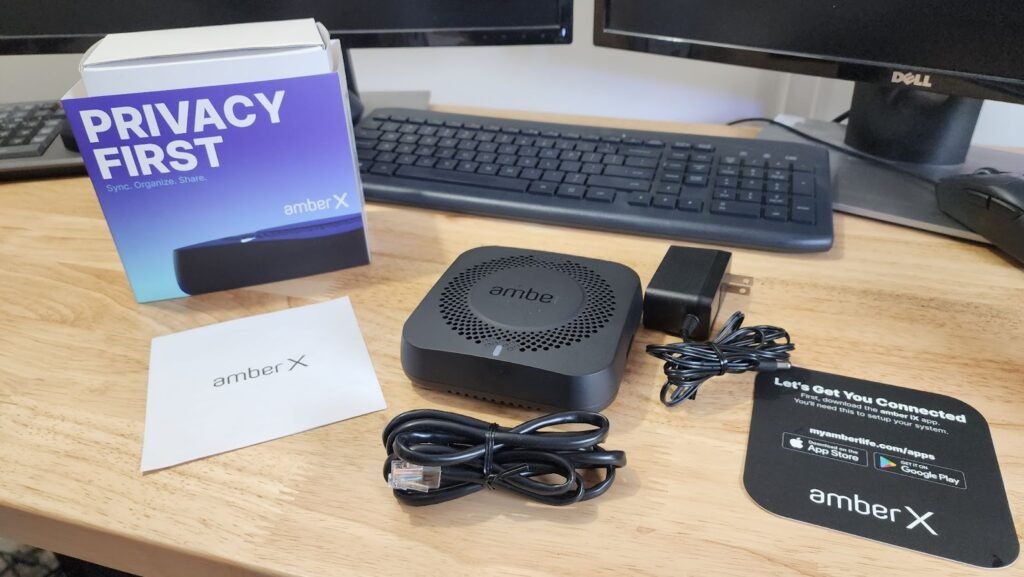What is a VPN? Can it really protect you and your family? Do I really need a VPN? Are there benefits of a VPN? What are the downsides of a VPN? There are a lot of questions surrounding the purpose and utility of a VPN and VPNs are becoming a popular thing. If you’re on the fence about whether or not to get a VPN, you’ll want to read on as we try to sort through the noise on this technology. We’ll highlight the benefits of using a VPN and why it’s worth considering adding one to your online security arsenal. We’ll also dispel some of the myths that often keep people from using a VPN and provide tips on how to choose the right VPN for your needs. So read on to find out the important deets on why you might need a VPN.
The Many Benefits Of A VPN
Let me break it down for you and show you the benefits of using a VPN.
Ask yourself these quick questions:
- Are you afraid of websites you visit having access to your location?
- Do you ever avoid using public Wi-Fi due to the possibility that someone on that same network could steal your passwords, banking information, or card numbers?
- Do you ever get extremely specific ads that feel like they were made for you in particular that make you wonder how much privacy do you really have online?
All of these valid concerns have led millions of internet users to start using Virtual Private Networks (VPNs).
A VPN is a service that allows you to connect your computer to another computer (also called a server) online in a completely different location and allows you to surf the net via that server’s internet connection.
What this means is that your web traffic and location are now hidden from anyone trying to snoop on your browsing habits to steal your personal information. You can read more about VPNs here.
When a VPN is activated, your connection to said VPN’s server becomes encrypted. Anyone trying to determine your location is instead given the location of the VPN’s server. You can connect to a VPN from your personal Wi-Fi at home, or you can connect to it using the free Wi-Fi available at many public spaces such as restaurants, coffee shops, or libraries. VPNs are especially crucial in the latter case. With public Wi-Fi, you never know who may be monitoring the devices that connect to it.
To recap, here are some of the most important benefits of a VPN:
- Hidden geo-location while accessing the internet
- Encrypted connection!
- Protect your privacy online. Your privacy is your personal currency. Protect it!
- To access websites that are blocked in your country (this includes Netflix and Disney+)
- To prevent hackers from stealing your personal data
- Protect your data from Governments (domestic and foreign)
- VPNs are surprisingly easy to use
- Security when on public WiFi or someone else’s network
- Affordable security. You can break the bank on antivirus, anti-malware, anti-spyware really quickly. For the most part, VPNs are very cheap security that works really well.
- Can help escape data caps. Many internet service providers will cap your data (or throttle your speeds way down) once you’ve hit a limit. A VPN may help you avoid these data caps.
Unfortunately, I often get asked, “Does Using a VPN really protect you?” I have to roll my eyes because usually, the type of person asking is a skeptic to begin with. And that’s okay. We should be skeptical when it comes to things like this. But don’t let what you’ve heard in social circles or on some YouTube video lead you to your definitive conclusion about something. Spend a little time doing a little bit of research. Because when someone does ask if a VPN offers viable protection, I resoundingly answer, “Yes!” every time.
Does The Average Person Need A VPN?
Absolutely and undoubtedly YES! The biggest reason is the average person who uses the internet at an average rate just doesn’t understand the benefits of a VPN and doesn’t know how to set one up. A VPN (virtual private network) isn’t just a service for tech-geeks and high-volume internet users. If anything, the average person NEEDS a secure, encrypted connection between their computer and the VPN provider’s server because they may not be aware of all the malicious cyberattacks and data-hacking that goes on. The average person, one could argue, is the most vulnerable and most targeted individual. A VPN connection isn’t just secure access for the nerds of the world, it’s for everyone who accesses the internet from anywhere.
LEARN MORE: Why Would You Use A VPN?
So When Should You Use A VPN?
VPNs should always be used on any Wi-Fi networks that aren’t your own. As long as your home Wi-Fi requires a password, your connection is encrypted. This means that your information is generally safe from snoopers. Your connection to the Wi-Fi at Starbucks, at an airport or even a hotel however, is unencrypted.
This means that anyone within range of the Wi-Fi can see what websites you’re visiting. The average person won’t see what you’re doing on those websites, however. Yet there is software that allows others to monitor your traffic that’s becoming increasingly commonplace, so it’s best to try to protect yourself in any way that you can.
Installing a VPN on your children’s devices means drastically decreasing the possibility that anyone interacting with them online will be able to use malicious software that will figure out their location. This is admittedly a very rare occurrence, but using a VPN, for this reason, helps some parents rest easy.
The Most Popular Myths About VPNs
In case you are still on the fence about how important a VPN is, let’s sift through some of the myths because chances are…one of these is why you have hangups about them. It’s okay. You’re not alone. Many people are hesitant to invest in a VPN because they’re not sure what they stand to gain. Here are some of the most popular myths about VPNs….
VPNs Can Slow Down My Connection
This is true. But let’s discuss why. There are a lot of different VPN options out there and not all of them are created equally. Some are just better than others. But generally speaking, if you set a VPN up properly, a slow connection isn’t an issue at all. You have to consider the trade-off here. The amount of protection coupled with the slight drop in browsing and streaming to me is well worth it.
Don’t Need A VPN Because I Don’t Go Anywhere Suspicious
Pump the brakes!! The main purpose of a VPN isn’t to protect you from suspicious or questionable content you may be accessing. This is probably the biggest misconception that leads to the “I don’t need a VPN” attitude. For the record, if you do access questionable content, then you definitely need a VPN. But many websites, apps, data sources, etc. all have the capability of accessing your personal data. It’s not just protection for the nerds and people looking at bad stuff. A VPN is for everyone.
I’m Not Tech-Savvy So I Don’t Need A VPN
Again…VPNs are for anyone who accesses the internet at all. It’s not just for the geeks, developers, programmers, and hackers out there. VPNs aren’t only for the advanced user. Don’t let all of these misconceptions and misnomers about the internet, data, and privacy scare you away. For the most part, VPNs are really easy to configure and you don’t have to worry about screwing something up.
VPNs: Will They Completely Protect Me?
Of course, VPNs aren’t a perfect solution. First it’s important to know that you can still get a virus or ransomware. A VPN is only protecting your connection. Second and this is a scary one if you don’t watch yourself, if you have any parental control settings enabled through your home router at home, then your kids could use a VPN to bypass those settings. This is an important aspect you need to be aware of. You would need a parental control app installed on their device instead of using your Wi-Fi settings in this case. Bark, Circles, Our Pact, Firewalla Purple, and Apple’s Screentime are great options in this regard.
Keeping your and your family’s information private while using the internet can be tricky. Using a paid VPN service is certainly an option to consider.
My Favorite Paid VPNs
I have tried a few VPN paid services and my favorite by far is with ExpressVPN. Not only is ExpressVPN a major player in this VPN niche, but they have servers in 90 countries, unlimited bandwidth (no more worrying about drastically slowed down VPN connections), have great support, and is easy to install. They also have a 30-day money-back guarantee.
Another great option for a paid VPN is Norton Secure VPN. Like other VPN services where you can secure information like passwords, personal data, banking info, credit cards…Norton has a new Split tunneling feature that allows users to choose which data to secure without losing access to local services. Other really nice features with Norton Secure VPN include: anonymous browsing, a new kill switch to automatically disconnect if the VPN connection is low, and a no-log policy so you don’t have to worry about online purchases being tracked. You also get a reputable brand like Norton behind this product so you know you’re in good hands with support and service.
>>Get Norton Secure VPN Here<<
My Favorite Free VPNs
Before we dive into these, let’s discuss why these are free. Their whole aim is to deliver a free service that’s good enough to do the basic VPN benefits you’re looking for. BUT…as you engage and use the free service, you’ll often find that there are some additional features you want that the free version just isn’t cutting for you.
Hotspot Shield is just that. They have a free version that includes 1 device connection, military-grade encryption, limited streaming access, up to 2 Mbps connection speed, a 500 MB daily data limit, and 1 virtual location (in the U.S.). There aren’t any free advanced features, but this is a great entry-level option to get your feet wet with how VPNs work.
ProtonVPN is another up-and-coming free VPN that has some overall great features that come standard with a VPN service. The free version has 24 servers in three countries, has no data of speed limits, 1 VPN connection, medium speed, is protected by Swiss privacy laws (which are some of the most strict and protective in the world), and a strict no-logs policy. Do you know what else we like about the free version? No ads! It probably is one of the best free VPNs available and another great entry-level service.
Do I Start With A Paid VPN or a Free VPN?
It depends. If you’re someone who considers yourself an advanced user of tech and the internet, then you definitely should opt-in for a paid version because you know what you’re getting. You probably understand the value of paying a minimal fee for great protection. It won’t take much to sell you on getting a paid VPN. But..if you’re new to VPNs and what they do, I’d definitely start out with a free version. And here’s why: because those companies who are offering a free version of their paid service eventually want you to buy their paid version. Why does that matter? Because when you’re in their free version they will do everything possible to make sure you have the BEST experience with VPN. You’ll get great support, great tutorials, great service which will all but guarantee you have a great experience with their product.
If You’re Still On The Fence About A VPN…
So…should you get a VPN? The answer is an unequivocal, “Yes!” A VPN will protect your online privacy, secure your devices when using public Wi-Fi, and give you access to content that may be blocked in your location PLUS a lot more benefits anyone can take advantage of. And the best part is that most VPNs are easy to download and use. Some of our favorite VPNs come with user-friendly apps, great install instructions that are easy to follow and simple to set up. What are you waiting for? Protect yourself and your data today by downloading a VPN.
Related Articles:
Why Should I pay for a VPN?
What is a VPN?
Why Would You Use a VPN?
Free VPN

